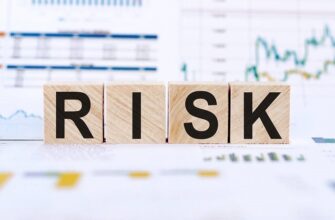So, today we will consider the question of investing in bonds, and try to answer whether it makes sense for individuals to invest in them? It is important to understand that such securities are usually called debt securities. They are corporate and government loans. The essence of bonds is that it is easier for a company to raise funds by issuing bonds than to take a loan from a bank. This method is trite cheaper.
If the bank offers a loan at 30%, the bonds will oblige the organization to pay only 15%.
Cheap money is the cornerstone of the existence of a bond financial institution
Bonds Investment opportunity is actively used not only by large companies and banks, but also by the state.
Investing in bonds is not an asset for everyone
If advertising of “profitable” bank deposits, and even more so “profitable” loans, can be very often observed in all media channels, then you will not see advertising of a particular bond issue. The trick is that issuers don’t reach that level. There are always a lot of consumers who want to invest their money as profitably as possible. What is the value of the bond?

This is a standard quote on the market, just like ordinary shares. But bonds are considered a more conservative instrument, unlike the aforementioned stocks and other stock market instruments. It is no exaggeration to say that this is the most reliable asset of all that is traded on the stock exchange. This instrument experiences much less fluctuations. The price itself consists of a quote on the market and coupon income. Mechanics follows the standard loans.
For example, you lend an organization $ 1,000 for 1 year. After the allotted period, you will be refunded $ 1,150, of which $150 will be your income.
There is one unpleasant aspect that lies in taxation. As in the case of shares, the state, through a broker, confiscates personal income tax from the total amount of earnings on bonds.
If we talk about the reliability of investment in bonds, then it is worth looking at objective factors. The first one is the gross turnover that these securities occupy on the trading platform.
The turnover of corporate bonds alone is more than twice that of stocks
Such figures say only one thing: bonds are an extremely popular asset for investors, which is in the highest demand.
Of course, the main share is generated by large participants, but then the question should be put differently. Will such a large amount of money be invested in an uninteresting or low-yield instrument? The answer to this question is obvious.
- The stereotypes in working with the debt securities
- There are several stereotypes that prevent active investment in bonds.
- For some unknown reason, novice traders avoid the topic of bonds.
Much more investors are interested in questions of linear profit: “where will the RTS index futures go?”, “where will the Euro / dollar pair be tomorrow?” and so on. This is due to a certain stereotype that has existed for quite a long time, according to which bonds are an asset for institutional investors, such as mutual funds and banks. In fact, this is not the case.
It’s important to know. Coupon income is the amount that the issuer will repay to the holder at the end of the allotted period.
Similarly, it is incorrect to say that multi-million dollar investments in bonds are required to work. Indeed, with such a turnover of assets, you can easily place excessive capital without any obstacles. On the other hand, even with a small amount you can invest in bonds with a good chance of getting a yield much higher than the bank one.
It’s important to know. Bonds do not provide a one-hundred-percent guarantee of your income by the maturity date. There are many reasons why the payment may not take place.

Another misconception is that bond yields are lower than bank yields. This is due to the fact that, as a rule, the comparison is between securities such as OFZ (which is partly true).
Return on investment in bonds
Investing in bonds in the debt market is always possible to find interesting solutions that do not require the investor to guess the market movements or conduct active trading, but in turn will be very risky and offer a very high yield (100-200% per annum). Such securities require a special approach and accuracy in their work, but still this debunks the myth that bonds can not bring serious income.
Where does this bond yield come from?
The fact is that the market quotation of the bond can at the moment fall in price several times and will be treated with a significant discount. It is just at such moments that speculators buy depreciated securities, hoping for a quick rebound, or timely repayment of the bond at its par value, which will be much higher than current prices. You can only make a couple of trades, instead of actively trading, guessing trends, calculating stop levels and experiencing nervous tension.

By ranking your portfolio, starting with pre-default bonds and ending with OFZs, you can create a balanced and viable product that will overtake the banking counterpart several times.
You can approach the issue of trading quite radically and form capital, which can be conditionally called “venture investments” and invest only in risky issuers on the assumption that one of the bonds will shoot and cover losses on most unsuccessful investments.
It’s important to know. There are bonds with a discount. Buying a bond at par 80% of its value, at the end of its term, 100% will be repaid.
Is it worth investing in bonds?
When solving this issue, the trader should pay attention to the situation in the economy. Reliable issuers, whose solvency is not in question, will always struggle with banks with the size of their rates. In turn, risky bonds can be of interest to investors who are looking for high returns with the least effort. It is enough for a trader to make a choice in favor of one or another corporation and wait. If the issuer gets out of the debt hole, or at least maintains the status quo, it already promises a yield that can double or even triple the current account of the depot.

From this perspective, bonds are very similar to options, with the difference that it is not the price chart that should be analyzed, but the statistics of companies and news that are published on the corresponding information guides.
If a trader is experiencing difficulties with intraday trading or the indicators of this trade do not suit him, he can find himself as a participant in the stock exchange, it is in the bond market. The moral responsibility for making decisions that are not always correct will be partially reduced. This gives a greater scope for fundamental research of issuers.
Today, many people underestimate investment in bonds. However, tomorrow such an opportunity may not be available. Every day the world changes. New laws are passed, ruling regimes are replaced, and various assets appear and disappear. Hurry up to take advantage of the opportunities that you have!








